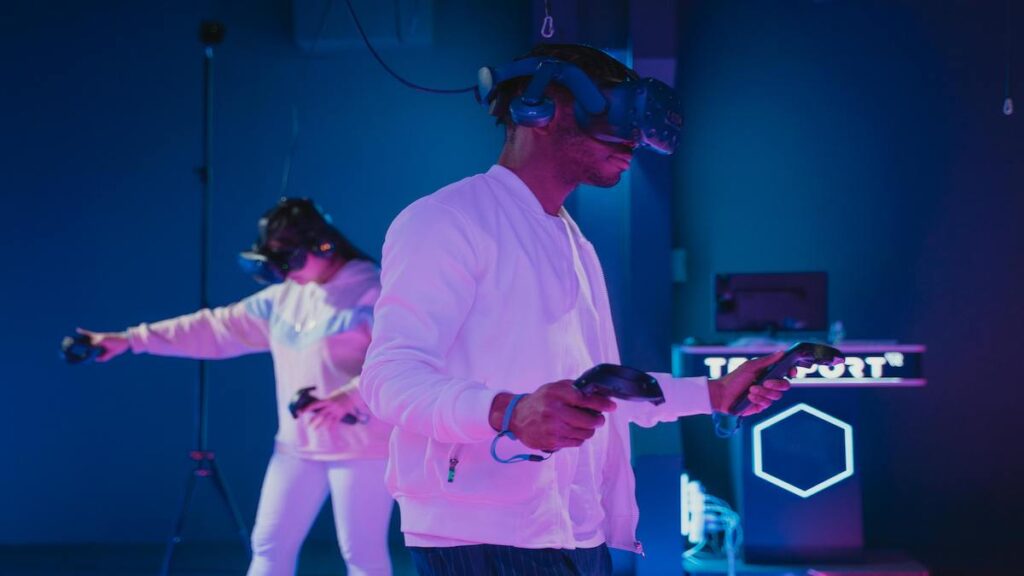In the not-too-distant past, gambling and casino gaming were all about land-based destinations. The emergence of online casinos in the 1990s was revolutionary and brought real changes to the gambling experience. Now, as technology continues to advance, we are witnessing the next stage of the revolution: the metaverse. Is offering virtual, immersive worlds the future of online gambling? Let’s take a look at how it compares to traditional online experiences.
A fully immersive experience
When playing at a traditional online casino, the action takes place on a two-dimensional screen. This means that player interaction with the environment is somewhat limited. However, if you pay in the metaverse, you have the opportunity to enter a fully realized virtual casino. Here you will find avatars that can interact with each other and the environment.

Source: Pexels
Can you imagine walking into digital Las Vegas? Well, the metaverse allows for just this. You can walk into a bustling casino where you’ll find slots, blackjack games, roulette wheels, and poker tables. You can see all the details here. You can see every roll of the dice, see the rankings of intricately designed poker hands, and even read the facial expressions of your fellow players.
Transparency and Security
As of now, online casinos are already very safe. In fact, you will find that they have encryption levels that match or even exceed those of your bank. However, you can see playing at casinos in the Metaverse elevated to a whole new level with the use of blockchain technology.

Source: Pixabay
The advantage here is that all transactions are recorded on a distributed ledger. When this happens, the records are immutable and verifiable, giving the player his peace of mind knowing his funds are safe and secure.
potential challenges
There is no denying that the metaverse holds a lot of promise when it comes to online gambling. But that doesn’t mean there aren’t challenges ahead. The first hurdle to overcome is the lack of widespread adoption. This includes the necessary hardware and software, with much of the adoption occurring in the early stages.
The second consideration is the security surrounding online gambling. If we take this into the metaverse, we see this becoming more complex as technology continues to advance. A robust approach is needed to ensure that those playing in the metaverse have the same protections as those playing in traditional online casinos.
So is this the future?
It is clear that the Metaverse has the potential to completely redefine online gambling. It has the ability to provide unrivaled levels of engagement, transparency, and security. Before the metaverse can lay claim to the online casino world, it needs greater adoption and a legal framework to keep up. What is certain is that it will be interesting to see how this space continues to develop and whether it actually becomes a destination for online casino fans.

